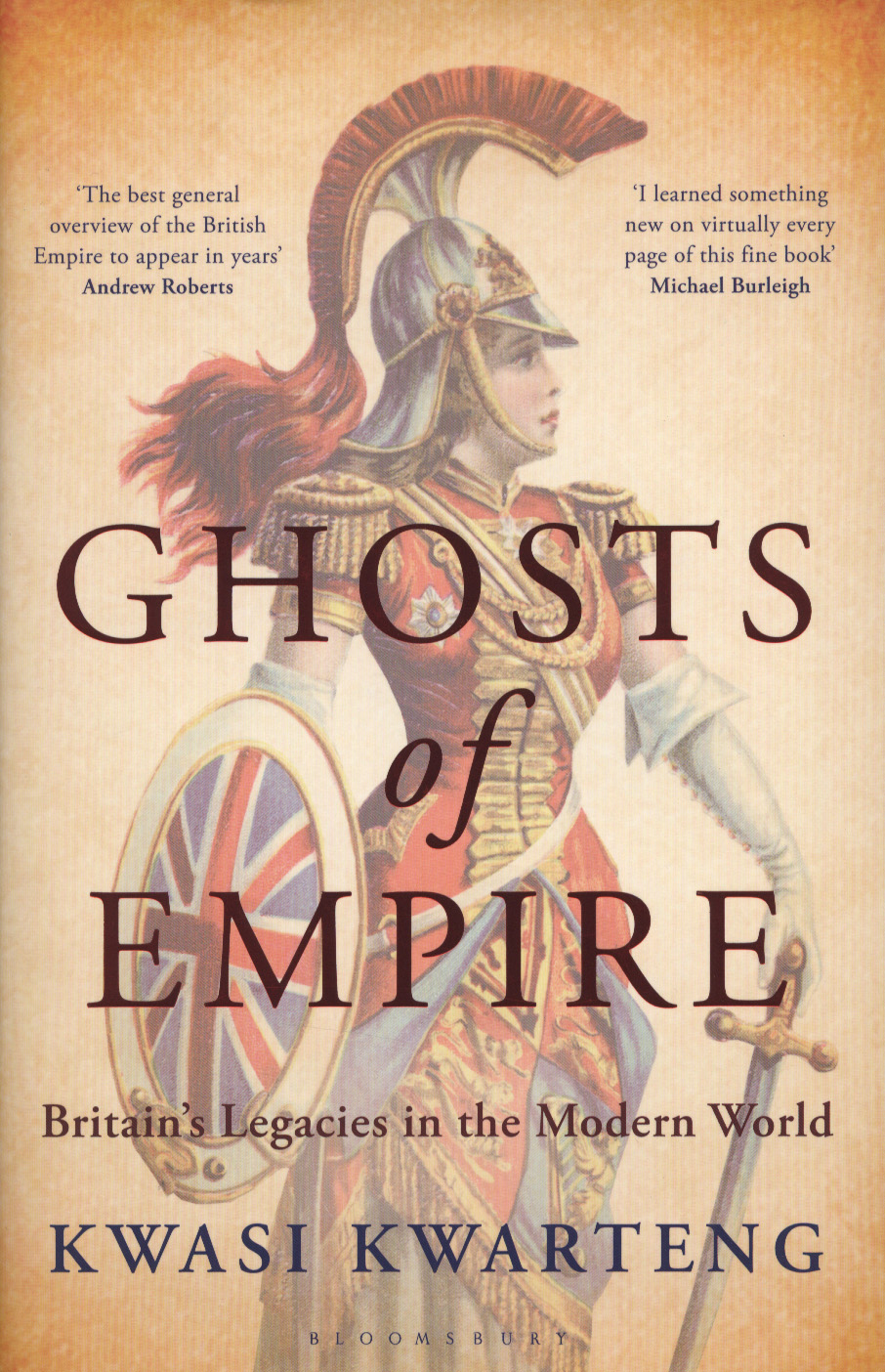Historians have long argued about the purpose and character
of the British Empire. Was it purely a commercial vehicle, or did it ultimately
export democratic ideals? Were native populations exploited and grossly maltreated
or did they benefit from an influx of foreign capital and commercial nous? In Ghosts of Empire, Kwasi Kwarteng,
historian and Conservative MP, treads a different path; rather than offer a
judgement on the Empire’s merits, he focuses on its results; on the policies
pursued and their ramifications.
 This leads Kwarteng to contend that the much discussed ‘imperial
project’ “was nothing more than a series of improvisations conducted by men who
shared a common culture, but who often had very different ideas about
government and administration.” In other words, “there simply was no master
plan”.
This leads Kwarteng to contend that the much discussed ‘imperial
project’ “was nothing more than a series of improvisations conducted by men who
shared a common culture, but who often had very different ideas about
government and administration.” In other words, “there simply was no master
plan”.
Via six case studies — which range from Iraq to Hong Kong — Ghosts of Empire seeks to underline the
quite varied nature of the imperial experience. Policy, Kwarteng argues, was
the preserve not of the Foreign Office, nor its Colonial counterpart, but of
the men (they were nearly always men) on the ground.
Such “anarchic individualism” led to several missteps. In Kashmir,
for instance, the British cultivated the rise of Hari Singh, which put a Hindu in
charge of a Muslim majority nation. The legacy of this decision was felt a generation
later when Kashmir’s rulers refused to join Pakistan, even though there was a
strong ethnic case for doing so. And, as any student of international relations
knows, tensions over Kashmir still persist to this day.
The ghosts in question then, are a serious of long-running
political and cultural disputes which can be traced back to the poor decisions
of individual colonial administrators. This, of course, is a damming indictment
of London’s ability to properly govern the territory which it greedily sought
to acquire. Indeed, after reading Kwarteng’s generally excellent book, no one needs
to be convinced about how vital a role competent civil servants play.
One element, however, that I found to be lacking was any
discussion of local agency. Sure, the Brits made bad, chaotic policy, but their
failures have surely been compounded by post-colonial governments. To return to
Kashmir, although many of the resulting problems can be traced back to the ill
judged decisions of the Empire, succeeding Indian and Pakistani officials should
not be absolved of responsibility.
Putting this to one side, for the reader, Kwarteng’s
position has a major advantage: by arguing that the Empire was run by individuals
the historian is required to profile them. Kwarteng pursues this task with
glee, and inevitably some of the characters he encounters practically leap off
the page.
Many, indeed most, shared a common educational background:
public school of repute, Oxford or Cambridge. This is not to say all colonial officials
were upper class, -- the majority, in fact, belonged to the middle — but it is
indicative of the type of rule they imposed. The Empire notes Kwarteng, was “governed
more by notions of intellectual and social elitism...than by any abstract ideal
of democracy or political liberalism”. In this sense Britain’s overseas
territories were far more hierarchical than society back at home. Ramsay
MacDonald, the author notes, would never have made it as a Colonial
administrator.
Would a socially varied staff have pursued more effective
policies? It’s difficult, impossible to say. Kwarteng doesn’t even try—a recurring
feature in a book which prompts many questions but offers precious few answers.
Certainly, it makes me wonder about the soon to be emerging global elite—politicians
and thinkers (including those from the emergent Asian nations) who have been
schooled together at Harvard, Yale, Oxford, Cambridge and Princeton.
Ghosts
of Empire has been widely praised and it’s easy to see why. Kwarteng
manages to sidestep the old, “stale” debates by stating something quite new:
that the Empire stood for nothing much at all.